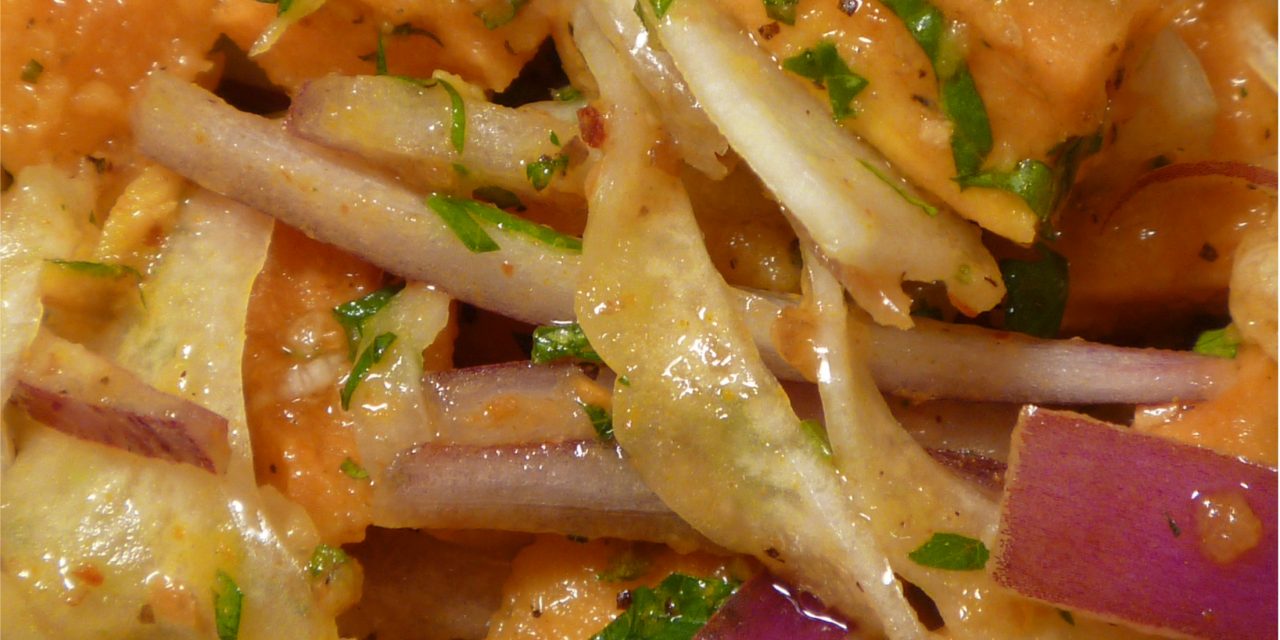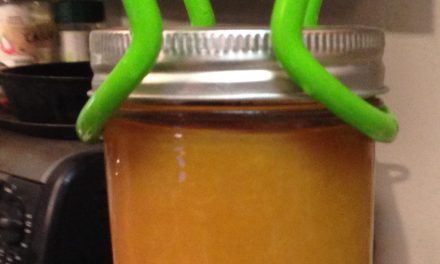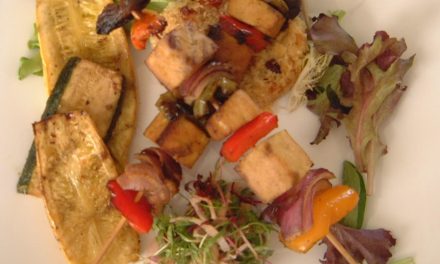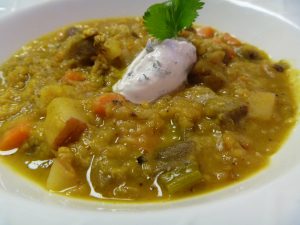 As an experienced professional, people always ask me what makes a good chef. There is no simple answer as a good chef possesses numerous skills. This is the second in my series of articles addressing those skills. Part 1 covered knives. Other skills include palate, plating, and managerial ability. Today I’m talking about palate, the flavor you coax out of different combinations of ingredients.
As an experienced professional, people always ask me what makes a good chef. There is no simple answer as a good chef possesses numerous skills. This is the second in my series of articles addressing those skills. Part 1 covered knives. Other skills include palate, plating, and managerial ability. Today I’m talking about palate, the flavor you coax out of different combinations of ingredients.
Taste Evolution
Without taste food would just be sustenance. The Spartans from ancient Greece believed in the functionality of food, not its opulence. Rome became captivated by all the different varieties and tastes of the ancient world and incorporated them into their banquets. Medieval cooks relied heavily on very expensive, hard to get spices. They added a spark to the food that was being consumed. They also had “drying” qualities that helped preserve foodstuffs. With the opening up of Europe after the dark ages, the Renaissance cook had many ingredients at their disposal, including food that traveled from the New World that added different flavors and tastes to the emerging modern cuisine. Finally, in the 19th century, modern cuisine was born. Chef August Escoffier helped bring taste into the forefront of dining.
Not many cooks actually explore the science behind what we do. We accept that we are alchemists. Our business is to constantly change the structure and nature of an ingredient and transform it into something else. Then we serve it to the diner who exclaims that this is the best thing ever. But why?
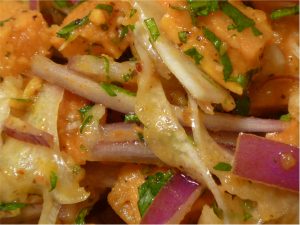 Umami. It is a concept every solid cook gets behind. We do something to the food that translates into “delicious” and makes diners come back to us. They remember the meal. They salivate every time they talk about what they ate — and they want more. They can’t duplicate the flavors at home, so they come back to the restaurant where the food was “off the charts.”
Umami. It is a concept every solid cook gets behind. We do something to the food that translates into “delicious” and makes diners come back to us. They remember the meal. They salivate every time they talk about what they ate — and they want more. They can’t duplicate the flavors at home, so they come back to the restaurant where the food was “off the charts.”
Cooks don’t study why or how this happens. We just cook. We carry on time honored traditions that have been handed down year after year, century after century since the time humans first cooked something over a fire. We employ palate, an essential element in a cook’s repertoire. It is something that either you have or you don’t. I have worked hard at developing my palate, pushing flavors to the limit of where they would dance on tongue and cause sighs of pleasure.
Developing a Palate
While working in restaurants, I kept experimenting, pushing, learning, tasting until one day I knew I had it right with a lentil salad. I was responsible for creating the Amuse Bouches. Every day, besides having my line prep ready, I had to come up with something that would tease and tempt the diner’s palate, moisten their mouths for the food that was about to appear in front of them. We had some go to recipes, but I was feeling a bit creative and thought it would be interesting to introduce a little Mediterranean into the mix. I cooked off lentils, diced onions and carrots, and minced parsley. I added fresh lemon juice, some champagne vinegar, a dash of cayenne pepper, salt, cumin, and coriander. I believe I tossed in a bit of fresh mint leaves as well. The chef at the time, the one responsible for every plate that went out of the kitchen, was absolutely thrilled. He was heading for the mixing bowl that held my inspirational creation. I cut him off at the pass. “No, you don’t, that’s for the guests!” After service he attacked what was left over, gleefully packing up a to-go container to take it home and share with the wife.
I had employed umami in this dish. I employed the four main tastes: sweet, sour, salty, and bitter. I succeeded and elevated the simple lentil into something diners at a fine dining restaurant would love and that would bring them back again and again.
As a chef I explore the how and why of taste. What exactly is the magic formula? Why is my vegan food better than the vegan food down the street? When I make hummus I put the same stuff into my hummus that anyone else does, but every time I make hummus, I get these looks of wonder. I get the stares, and then the comment “what did you do to this food?” What do I do that they aren’t doing? Is there a secret? Turns out there is.
Umami & the Science of Taste
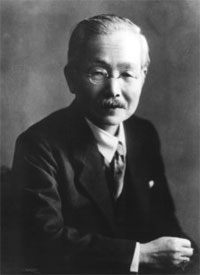 I looked up umami and taste in preparation for this article. I’ve heard the word throughout my entire career, but had never really researched it. It was an accepted fact of life in the kitchen. What we were striving for is what every good chef strives for, that fifth flavor.
I looked up umami and taste in preparation for this article. I’ve heard the word throughout my entire career, but had never really researched it. It was an accepted fact of life in the kitchen. What we were striving for is what every good chef strives for, that fifth flavor.
But what exactly is umami? Why are we so interested in making “explosive” taste come alive?
The science of taste dates back beyond Roman times. Ayurveda cooking knew six tastes. More recently, Escoffier (Father of Modern Cuisine) knew four. The Japanese scientist Kikunae Ikeda studied taste and invented Mono Sodium Glutamate. He identified umami, the fifth taste. It means “delicious,” or “yummy,” in Japanese. When one of my co-workers exclaims, “That’s delicious!” They are calling my food umami.
Modern science is finally verifying what Ikeda taught us. Studies from over the last twenty years have proven the existence of tongue receptors that will combine the four tastes: sweet, salty, sour, and bitter, and make them into that fifth flavor. Add in pungent and astringent from Ayurveda study of cooking, and you can begin to see the picture of how complicated taste can become. This is why a cook or a chef cares about making sure the proteins get cooked for a long enough time to become so delicious and tasty that they turn the diner into a craven addict.
Umami for You
How can someone cooking at home develop this umami? This deliciousness of food? Read about the process of cooking. Even as plant-based eaters there are ways to develop the food that breaks the proteins down into glutamates (which cause umami). Slow cook beans. Use fresh ingredients then break them down. I believe this is why the jackfruit I made a couple weeks ago turned into such beautiful little bites. In that slow cooker it breaks down and succumbs to the transformation that happens to food that causes umami.
Some chefs are gifted with taste. Right away they know. As children and young adults. Some chefs never sully their palates with nicotine and caffeine. They have pure taste.
Some of us struggle. It takes time. Years even to find our palate. Taste is already there, it has to be to make it past prep cook. Sometimes it takes a little longer to develop the ability to create yumminess to our food. I finally found that nirvana. That place where taste meets every other element on the plate and those who eat what I cook want, need and crave more. I’m happy about achieving this state of umami.
Can I teach this to you? I can try. Only you can elevate your cooking to that state of umami. Like anything creative, it takes practice. Keep cooking, and you are bound to find bliss for yourself and your diners.

